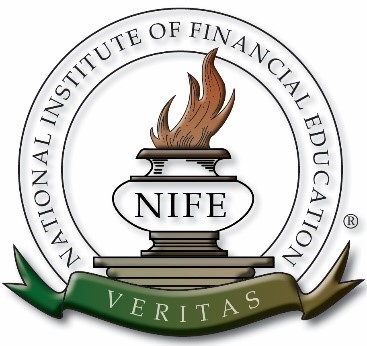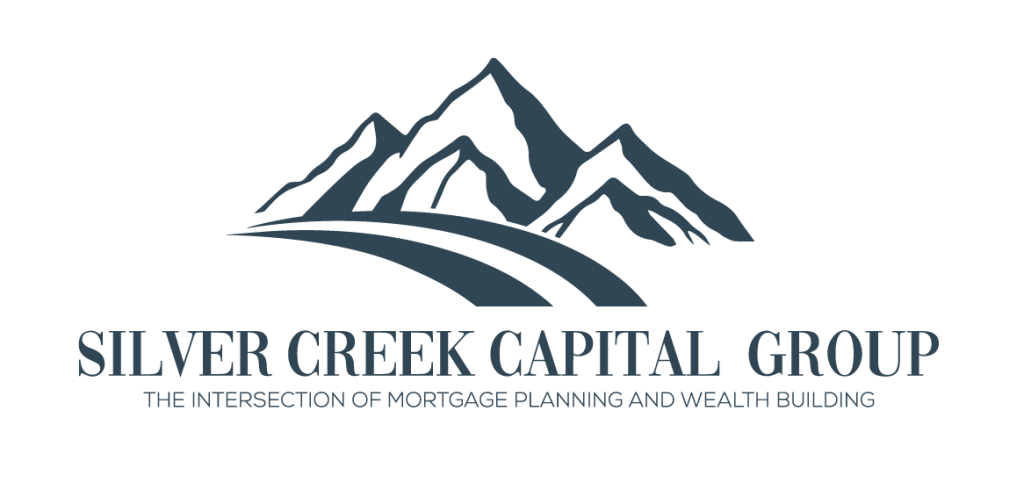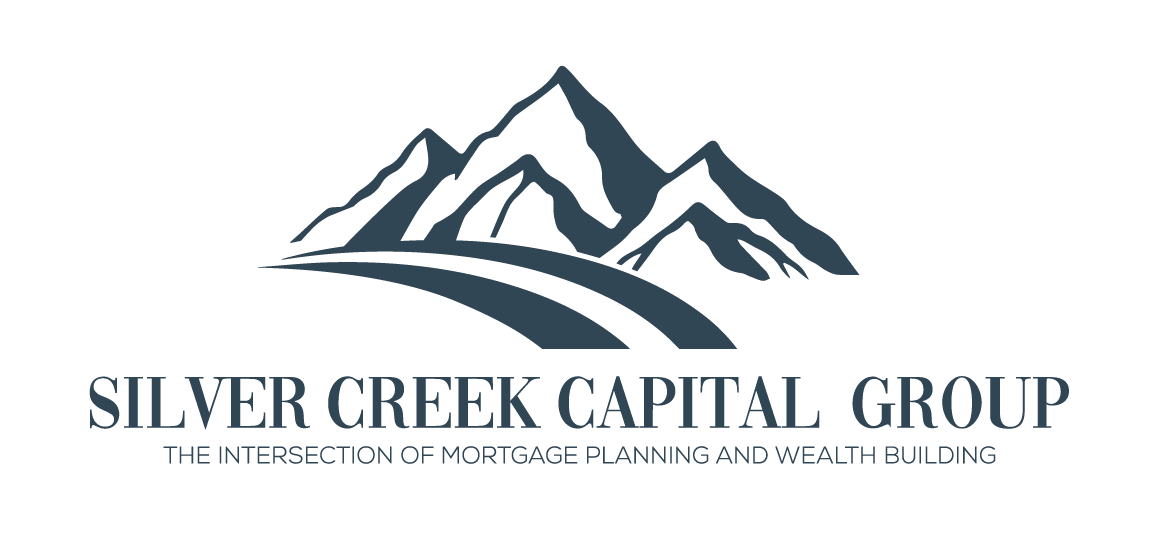Financial Education
Financial Education
Financial Education
Financial education encompasses essential concepts for informed decision-making. This includes recognizing the time value of money, differentiating between good and bad debt, and efficiently acquiring and protecting assets. Moreover, understanding tax-advantaged investment strategies for retirement planning is crucial, optimizing wealth growth while minimizing tax burdens for a secure and prosperous future.
Albert Einstein is often attributed with the quote about compound interest:
“Compound interest is the eighth wonder of the world. He who understands it, earns it; he who doesn’t, pays it. “This quote emphasizes the incredible power of compound interest in the world of finance. When you earn interest on your initial investment, and then that interest earns more interest in subsequent periods, your wealth can grow significantly over time. On the flip side, if you have debts on which you’re paying interest, compound interest can work against you, causing your debts to grow faster if not managed properly. Understanding and harnessing the concept of compound interest is
fundamental to building and managing wealth. The quote underscores the importance of financial literacy and understanding the concept of interest in personal.
1.Financial Literacy:
- Understand Basic Financial Concepts: Learn fundamental concepts like income, expenses, assets, liabilities, and net worth.
- Budgeting: Create and stick to a budget that tracks your income and expenses, helping you manage your money more effectively.
- Saving and Investing: Learn about different savings and investment options, such as savings accounts, stocks, bonds, and mutual funds.
2.Cash Management:
- Emergency Fund: Build an emergency fund to cover unexpected expenses, typically three to six months’ worth of living expenses.
- Expense Tracking: Keep track of your daily and monthly expenses to identify areas where you can cut costs.
- Reduce Unnecessary Spending: Cut down on discretionary expenses like dining out or entertainment to save more money.
- Automate Savings: Set up automatic transfers to your savings or investment accounts to ensure consistent saving.
3.Credit Mastery:
- Credit Scores: Understand how credit scores work and the factors that affect your creditworthiness.
- Responsible Credit Card Use: If you have credit cards, use them responsibly by paying your bills on time and in full each month.
- Avoiding High-Interest Debt: Try to avoid accumulating high-interest debt, such as credit card debt, by living within your means.
- Monitoring Credit Reports: Regularly check your credit reports for errors and signs of identity theft.
4.Proper Use of Debt:
- Good Debt vs. Bad Debt: Understand the difference between good debt (investments like education or a home) and bad debt (high-interest consumer debt).
- Debt Repayment Strategies: Develop a plan for paying off debt, focusing on high-interest debts first (debt avalanche or debt snowball methods).
- Responsible Borrowing: When taking on new debt, ensure that the terms are favorable, and you have a clear plan for repayment.
- Avoiding Debt Traps: Be cautious about payday loans, high-interest personal loans, and other predatory lending practices.
5.Financial Goals:
- Set Clear Goals: Define short-term and long-term financial goals, such as saving for retirement, buying a house, or paying off student loans.
- Create a Financial Plan: Develop a detailed plan outlining how you will achieve your financial goals, including timelines and savings targets.
- Review and Adjust: Periodically review your financial plan and make adjustments as needed based on changes in your life or financial circumstances.
6.Invest in Financial Education:
- Continuously educate yourself about personal finance through books, online courses, workshops, and financial advisors.
- Stay Informed: Keep up to date with financial news and trends that might impact your investments or financial decisions.
7.Risk Management:
- Protect Against Risks: Consider insurance options to protect yourself and your assets from unexpected events like illness, accidents, or disasters
8.Time Value of Money (TVM):
- TVM Concept: Understand that money has a time value, which means that a sum of money today is worth more than the same amount in the future. This concept is based on the principle that money can earn interest or generate returns over time.
- Future Value (FV): Learn how to calculate the future value of money by taking into account interest rates or investment returns. This helps you determine how much your money will be worth at a future date.
- Present Value (PV): Learn how to calculate the present value of future cash flows, which allows you to determine the current worth of a sum of money to be received or paid in the future.
- Time Horizon: Consider your time horizon when setting financial goals and making investment decisions. Longer time horizons generally allow for more significant growth due to compounding.
Understanding TVM is essential because it influences various financial decisions, such as saving for retirement, evaluating investment opportunities, and assessing the cost of loans. By recognizing the importance of the time value of money, you can make more informed choices that align with your financial goals and aspirations. Remember that personal finance is a lifelong journey. Building good financial habits and continuously educating yourself will lead to greater financial security and the ability to achieve your financial goals.
Borrow Smart Repay Smart
“Borrow smart, repay smart” is a financial principle that emphasizes making informed and responsible decisions when borrowing money and managing debt. It encourages individuals to borrow money only when it is necessary and to do so wisely, considering factors such as interest rates, terms, and the impact on their overall financial health. Additionally, it underscores the importance of having a clear plan for repaying borrowed funds on time and in a way that minimizes interest costs.
Here are some key components of this principle:
- Assessing Needs: Before borrowing money, carefully evaluate whether it is essential and if there are alternative ways to meet your financial needs without taking on debt.
- Understanding Terms: When considering a loan or credit, thoroughly understand the terms and conditions, including interest rates, fees, and repayment schedules. Compare different borrowing options to find the most favorable terms.
- Budgeting: Create a budget that includes your loan repayments. Ensure that you have enough income to comfortably make these payments without sacrificing essential expenses or accumulating additional debt.
- Avoiding Predatory Lenders: Be cautious of lenders who offer loans with excessively high interest rates or hidden fees. It’s important to deal with reputable financial institutions.
- Credit Score Maintenance: Be mindful of how borrowing and repaying debt affect your credit score. A good credit score can help you secure better borrowing terms in the future.
- Emergency Fund: Build an emergency fund so that unexpected expenses can be covered without resorting to high-interest debt.
- Repayment Strategy: Have a clear plan for repaying your loans. This might include making regular, on-time payments and, if possible, paying more than the minimum required to reduce the overall interest cost.
- Avoiding Overborrowing: Don’t take on more debt than you can realistically manage. Overextending yourself financially can lead to stress and financial instability.
- Financial Education: Continuously educate yourself about personal finance to make informed decisions about borrowing and managing debt.
- Borrow Smart Repay Smart Checklist
Name_____________________________________________ Date______________________
Mortgage Planning
- My Mortgage and other debt payments are within my expected budget – Ideally your commitment to your housing expense is no more than 1/3 of your gross income, too high costs flexibility and protection, too low can lead to missed tax benefits and growth opportunities
- I have a strategy for repaying my mortgage – there are many ways to pay off debt other than monthly payments. Saving/ investing outside your home it may be more efficient.
- I follow the 4 Basic Steps to building Wealth with my Cash Flow – 1) Build a short-term reserve 2) Pay off all consumer debt 3) Build massive liquidity 4) Pay off mortgage debt
- My Mortgage is Integrated into other financial Goals – A home builds Wealth but should be balanced with other priorities – Education, Retirement and Living life
- I am committed to building and maintaining Great Credit – your credit history affects what you pay for things in life. Not having perfect credit can impact you in some very expensive ways.
- I review my mortgage with my Mortgage Advisor annually – life and plans change, the market moves - optimizing your debt and mortgage repayment strategy should be reviewed annually.
Real Estate
- I understand that Real Estate can be a foundation for building wealth and financial security – for many Real Estate is the largest asset, biggest source of net worth and largest liability
- Do I want to own Real Estate as an investment – how you plan for investment real estate (second homes, units, commercial) is very different than on a primary home
- I get that the wealth (equity) in my home is one of my least liquid sources of net worth – managing the equity in Real Estate is tricky but key to building financial security
- I have a Trusted Realtor® advisor as part of my Wealth Team – Technology allows us to get behind the scenes of real estate, but a great Realtor is critical for understanding trends, negotiating and advising on the right time to buy or sell
- Real estate is one of the only investments I can own using mostly other people’s money – leverage is great when used appropriately as part of a larger strategy
- I have protected my investment in Real Estate with good insurance and estate planning – as the largest asset for most families it is key to make sure you protect your wealth
- I budget for all the expenses related to Homeownership – not just taxes and insurance but for maintenance, updates, and unexpected repairs
Financial Planning
- Do you have a Financial Advisor – If not who are your trusted advisors? Family, friends, other financial professionals – who do you call when you make an important financial decision?
- I save 10-15% of my income every month – this is a basic strategy and easy to make automatic – must be a commitment early in life to allow for the miracle of compounding interest
- I have life insurance to protect my family – term life insurance is inexpensive and should be in place once you own real estate and have a family
- I invest in my company retirement plan – especially if there is a matching amount – this is free money and can substantially increase the rate of return on your investments
- I set aside funds for charity and donations – if this important in your life it is simple to create automatic savings strategy and you can potentially get a tax benefit
- I set aside fu.0nds for fun and living life to the fullest – Planning creates freedom to live life – not planning allows others to create the life you live
- I want to create a Better Personal Plan around Cash and Liabilities and need some help – if you are not in a position to work with a financial advisor we have a program – just ask about CALM™
Estate Planning
- I understand the benefits and protection of a Living Trust – once you own real estate, have a family or starting to build assets, the protection and tax benefits of a Trust make sense
- I have identified who in my life will take care of my family and stuff should I not be able to – No one wants to think about an unexpected death or severe health issue but ignoring it does not mean it will not happen – simple steps can be taken anytime
- My adult children have created a POA for protection reasons – once over 18, parents no longer have a say in decisions in case of an accident. A Power of Attorney allows some control in an unfortunate situation
- I have deeded my assets into my Trust – once a Trust is in place all assets should be titled with the name of the Trust or you may not have the protection and benefit of the Trust
- If I don’t need a Trust, I have checked out other options – Creating a Trust can be expensive but there are several options for all circumstances
- I want to set up an Estate Plan and Trust, I need a Trusted Advisor – we can connect you!
Property & Casualty Insurance
- I have confirmed with my insurance professional that I have adequate home protection – minimum coverages, replacement cost, personal injury are basics that should be reviewed as part of your planning with your home
- I have an umbrella policy in place for extra protection of my assets – this simple and cost effective insurance provides high dollar protection in case of a family members involvement in a significant loss to another party
- I have confirmed with my insurance professional that I have adequate auto protection – bodily injury, uninsured limits and lease/loan gap coverage are ones to review periodically
- If my properties are held in a Trust that Trust is listed on my insurance policies – listing your Trust as an additional insurance on your Homeowners policy ensures full protection
- I need a Trusted Advisor to review all my current coverages – we would love to connect you!
What is budgeting?
What is budgeting?
Budgeting is a process for tracking, planning, and controlling the inflow and outflow of income. It is a process that we all begin soon after we get our first spending money. Relying on our overloaded minds to manage such a complex process has many shortcomings. The solution is to analyze your current situation, determine your goals, and develop a written plan against which you’ll measure your progress.
How does the budgeting process work?
The budgeting process begins with gathering the data that makes up your financial history. Next, you use this information to do a cash flow analysis. You will calculate your net cash flow, which tells you whether cash is coming in faster than it’s going out, or vice versa. Then you will determine your net worth. Simply stated, this is the sum of everything you currently own less the sum of everything you currently owe. Having a snapshot of your present financial situation, you’ll then define your financial objectives and create a spending plan to achieve them. Finally, you will periodically check your progress against the plan and make adjustments as needed.
Analyzing cash flow is little more than adding and subtracting
Add up your income, then your expenses, and subtract the latter from the former. The result is your net cash flow. If it is positive (hopefully), you’re earning more than you’re spending. If not, then budgeting is not really an optional process. You must do it to avoid losing more ground financially. To the extent that you can make cash flow strongly positive, you will be able to save for upcoming needs and investments.
Is net worth growing or declining?
Your net worth shouldn’t be a mystery. To determine what it is, you simply add up the current value of your assets (the things you currently own), and then subtract the total of your liabilities (what you currently owe). The idea, if you haven’t guessed it, is that your net worth should grow from year to year, barring unforeseen setbacks.
Know where you stand, turn to the future, and set your goals
You might have one or more major savings needs goals in mind, but now is the time to look at all your anticipated financial needs, including your cash reserve, and determine your goals. Knowing what all of your goals are enables you to create the best plan to achieve those objectives over the long term. While you may not be able to achieve all of your goals simultaneously, having a plan in place will help as you work toward your future goals.
Create a spending plan that fits your resources and objectives
Once you know where you stand financially and the goals you hope to achieve, you are in a position to design a plan that will move you expeditiously in that direction. You will know how aggressive you need to be in order to achieve the objectives you set, and therefore you can design a plan that fits both your resources and objectives.
Just as with a plan that falls short of delivering on your goals, a plan that is overly aggressive relative to your resources is likely to lead to budget frustration. Keeping goals aligned with objectives is a critical part of the process and essential to budgeting successfully.
Remember that it is a plan and that plans change as needed
Flexibility is always an important ingredient in the planning process. As life’s circumstances change, as they inevitably will, you will need to adjust your spending plan accordingly. The important point is that the budgeting process keeps you abreast of how these changes are occurring and allows you to make changes as you find them appropriate to your needs and resources.
Budgeting can be a temporary or a permanent habit
It may be that your present financial situation calls for the short-term control that budgeting can provide. Alternatively, you may find that budgeting gives you a level of control over your finances that you’d prefer to maintain over the long term. If the latter is true, you should make it a lifelong habit.

Contact Stan when completed to schedule time to go over the form 303-656-1997 or email stan@silvercreekcapitalgroup.com.
Courses Available:
- Financial Literacy
- How to Teach Your Kids About
- Cash and Liability Mastery
- How to Borrow Smart
- Credit Mastery
- The 3 Sided Balance Sheet
Course Description:
Financial Literacy-
“Essential course on money skills: budgeting, investing, taxes, loans, and leveraging time value of money, emphasizing early start.”
How to Teach Your Kids About Money-
“Parent-focused course: Equipping parents to teach kids about money—earn, save, spend, invest wisely—nurturing financial understanding from early age.”
Cash and Liability Mastery-CALM introduces a 9 step program that teaches the mastery of cash flow, borrowing and key money dynamics about investing.
How to Borrow Smart-The course focuses on the key foundations of Safety, Liquidity, and Return with a focus on wealth building through Real Estate.
Credit Mastery-What is your Credit Score and what does it mean, the goal of the course is to explain the concept of credit scoring as a game and how best to play the game.
The 3 sided Balance Sheet-Whether it is buying your first home, second home, moving up or moving down, buying a house can be daunting, this program educates the individual about how to buy a house.
Instructors:
Don Cooley-
Don is a licensed mortgage loan officer, RICP and holds a series 6,63,65. Don has worked with hundreds of clients to assist them in achieving their financial goals of homeownership, retirement income and generational wealth
Stan Bryant-
Stan is a licensed mortgage loan officer, CLA and CDLP. In addition he holds Colorado licenses in Long Term Care, Life and Health Insurance. Stan has over 25 years of experience and developed plans for families that have resulted in the protection of assets and reduction of costs of homeownership for hundreds of families.


